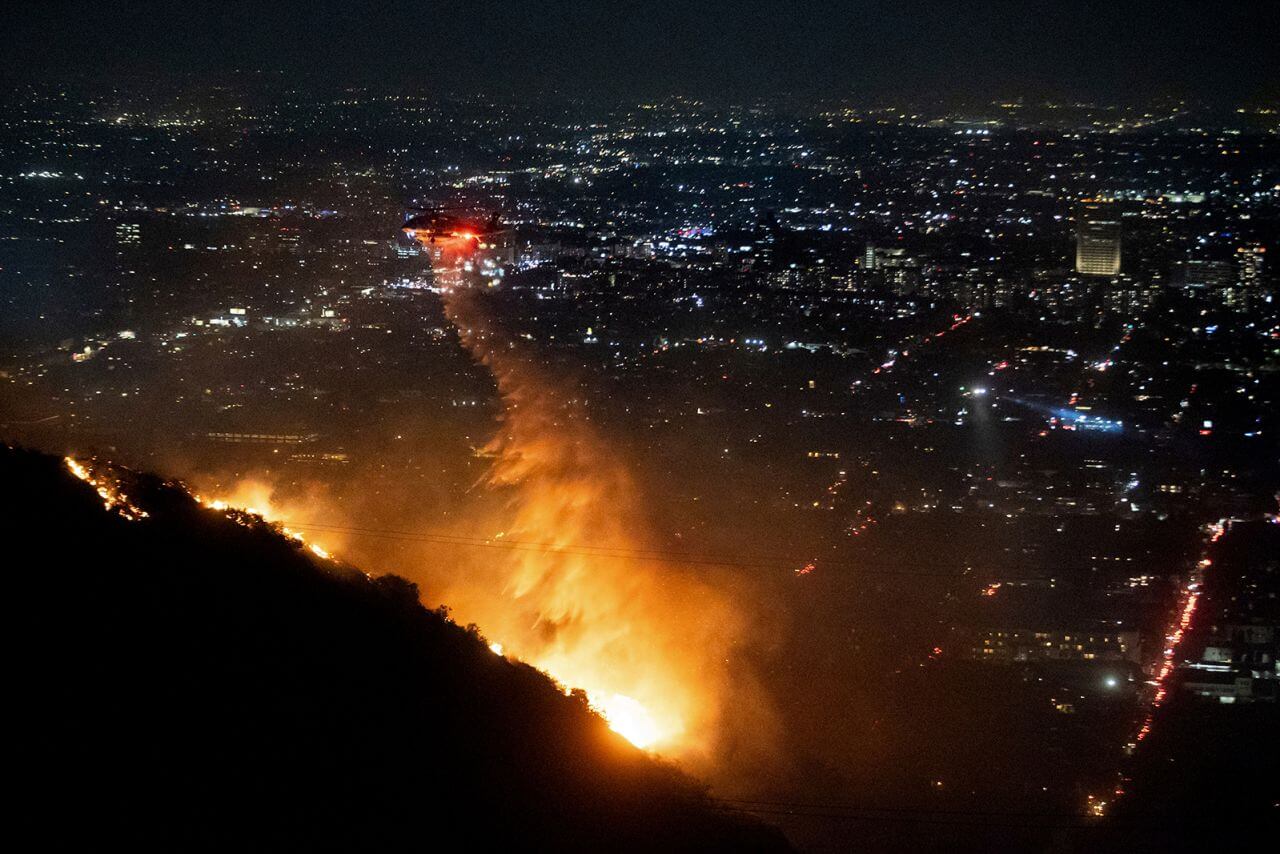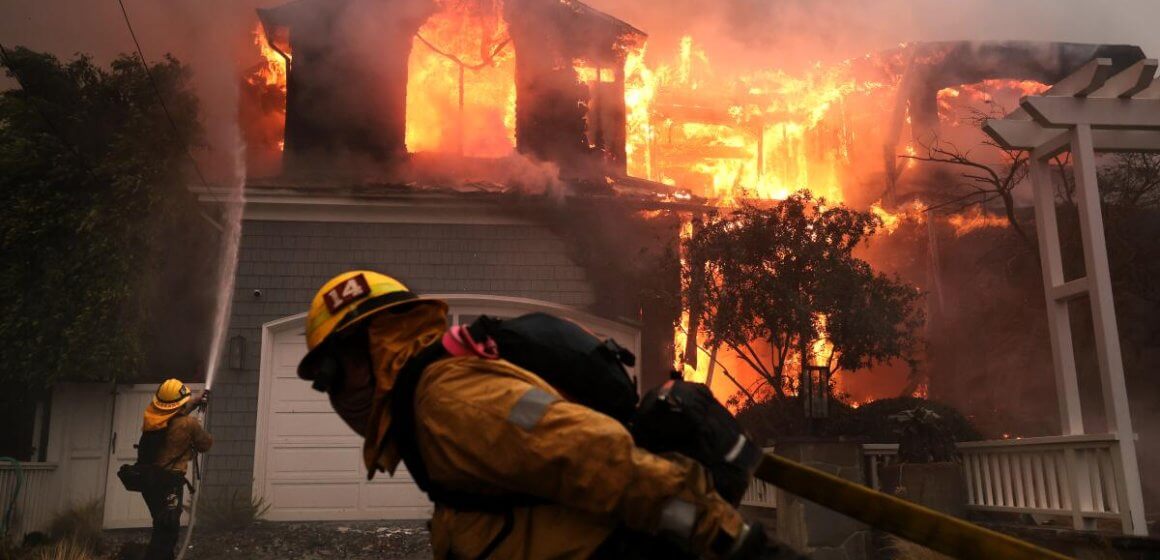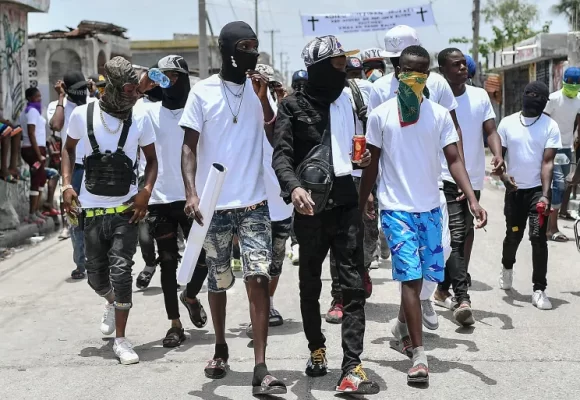|
LISTEN TO THIS THE AFRICANA VOICE ARTICLE NOW
Getting your Trinity Audio player ready...
|
Los Angeles, a city known for its glamour and sprawling neighborhoods, found itself under siege this past week as wildfires ravaged the region, leaving devastation in their wake. The fires, fanned by relentless desert winds, claimed at least 10 lives, reduced nearly 10,000 structures to ash, and turned vast swathes of land into smoldering wastelands.
The Palisades Fire, situated between Santa Monica and Malibu, and the Eaton Fire near Pasadena, were the most destructive in the city’s history, devouring over 34,000 acres combined. Entire neighborhoods were erased, their streets now lined with charred debris and the skeletal remains of homes.
As residents reeled from the destruction, the toll on human life and the local economy became increasingly apparent. Los Angeles County’s Medical Examiner confirmed 10 fatalities late Thursday, while Sheriff Robert Luna warned that the death toll was expected to rise. “It’s like nothing I’ve ever seen,” Luna said. “The devastation is unimaginable, and we’re bracing for worse news.”

The wildfires erupted at a time of heightened vulnerability. The largest blaze, the Palisades Fire, remained only 6% contained by Thursday evening, while the Eaton Fire raged uncontrollably with 0% containment. To the west, a rapidly growing inferno near Calabasas – home to some of the wealthiest neighborhoods in the U.S. – spread to nearly 1,000 acres in mere hours, threatening gated communities and celebrity residences.
The fires disrupted lives across socio-economic lines, but their impact exposed stark inequalities. In Altadena, a racially diverse community near Pasadena, residents feared their recovery efforts might be sidelined in favor of wealthier areas. “We’re already hearing about celebrities stepping in to rebuild their homes, but for us, it’s a fight just to get insurance to listen,” said Kay Young, standing by the ruins of her family home.
Federal support offered a glimmer of hope. President Joe Biden, who declared the fires a major disaster earlier in the week, pledged full federal reimbursement for recovery costs over the next 180 days. “Spare no expense,” Biden said during a White House meeting. His administration committed to covering debris removal, temporary housing, and first responder salaries.

While wealthier neighborhoods received significant media attention, many middle- and working-class families faced fears of being overlooked. Insurance claims, historically fraught with delays and disputes after natural disasters, added to their anxieties. The air was thick not just with smoke but with uncertainty about what rebuilding would look like for these communities.
Amid the destruction, acts of defiance and courage emerged. In Pacific Palisades, John Carr, 65, ignored evacuation orders to save his family home. “My parents built this house in 1960,” he said, standing amid the ruins of his neighbors’ properties. “I couldn’t just abandon it.”
The fires not only ravaged homes but threatened cultural landmarks, including the Mount Wilson Observatory, where Edwin Hubble made discoveries that reshaped humanity’s understanding of the universe. Fire crews managed to save the observatory, though the surrounding area bore significant damage.
Environmentalists have expressed concern over the long-term ecological damage caused by the fires. The hillsides, once alive with diverse flora and fauna, now resemble a post-apocalyptic landscape. Wildlife, already strained by urban sprawl, has been displaced on an unprecedented scale.
The catastrophe elicited an international response. Canadian firefighters and equipment were dispatched to assist overwhelmed crews in California. Canadian Prime Minister Justin Trudeau extended his condolences, saying, “We stand with our American neighbors during this difficult time.”
Back on the ground, the human spirit proved resilient. Chef José Andrés, renowned for providing food in disaster zones, set up operations near the Palisades Fire to serve displaced families and emergency responders. “Disasters don’t discriminate,” Andrés said. “We’re here to make sure no one goes hungry.”
Actor Jamie Lee Curtis announced her family’s donation of $1 million to recovery efforts, while community volunteers worked tirelessly to support those displaced. Schools remained closed across Los Angeles County due to hazardous air quality, and officials worked to establish curfews in evacuated zones to prevent looting.











LEAVE A COMMENT
You must be logged in to post a comment.